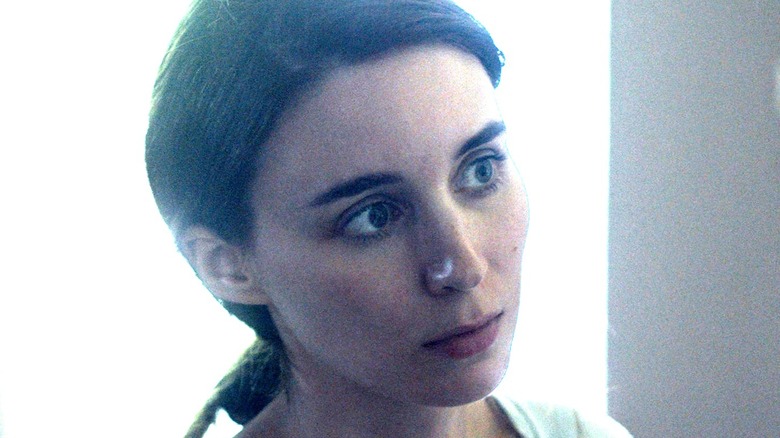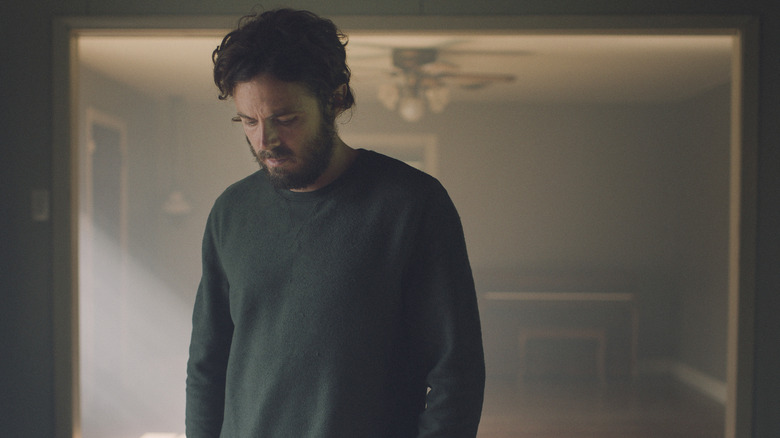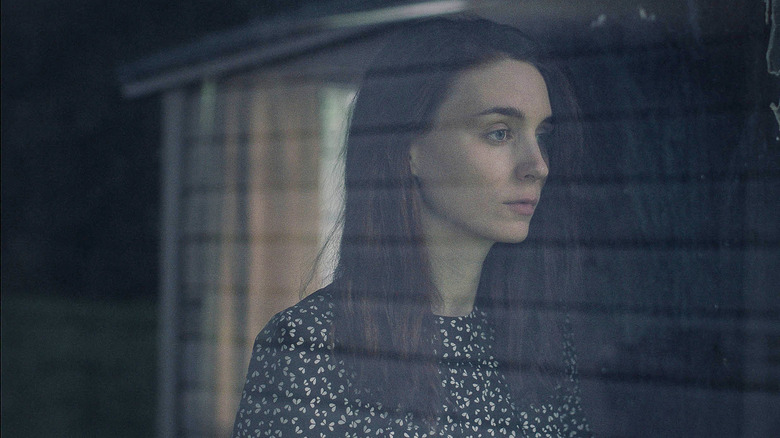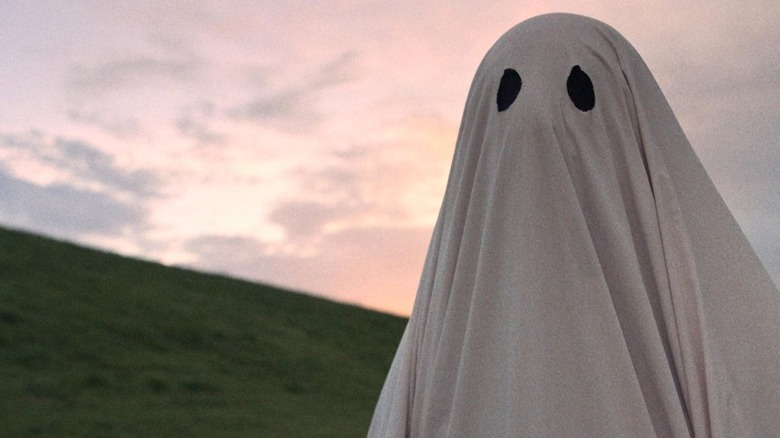The Ending Of A Ghost Story Explained
For the past few years, director David Lowery has consistently proven that he can tell moving, emotional stories across a wide variety of formats and styles. He directed "Pete's Dragon," a live-action Disney remake that critics praised for being much smarter and subtler than many similar titles (via Rotten Tomatoes). Lowery is also the director behind "The Old Man and the Gun," a film that may turn out to be Robert Redford's last onscreen performance (per IndieWire). It tells the story of an aging con man, and manages to be consistently entertaining even as it finds an emotional center to the story it's telling.
Now, as fans of the director eagerly anticipate "The Green Knight" — Lowery's next project, which is set to hit theaters on July 30 — some are looking back on his older films to better appreciate his style.
Although there's something to latch onto in every one of Lowery's films, "A Ghost Story," his 2017 film starring Casey Affleck and Rooney Mara, is one of the director's least obviously accessible titles. In the film, Affleck and Mara play a married couple named C (Affleck) and M (Mara). C dies unexpectedly in a car crash, and instead of moving on to another realm after his death, he decides to stay and watch what happens following his demise, hidden under a simple white sheet with two eyeholes.
Here's the ending of "A Ghost Story" explained.
The end of A Ghost Story circles back on itself
Following his death, C watches M grieve for him, and M eventually comes to the decision to move out of the home they shared. Before she does that, though, she writes a short note and leaves it in a crack in one of the house's wall. Then, C begins to haunt the people who move into the house after M leaves, and tries continuously to pry the note out of its hiding place in the wall.
Although no one can see him, C is still able to disrupt the house and its inhabitants, until the house is eventually torn down and replaced with a skyscraper. C climbs to the top of the skyscraper and jumps off, only to find himself on the same piece of land that was first being settled centuries earlier. Time eventually hurls him back to the moment when another version of C, who's still alive, is buying the house with M. We see the strain in their marriage, and C's ultimate decision to give in to M's request to move. We then witness his death again, and the emergence of another version of C as a ghost who cannot see the ghost we've been following throughout the movie. It's at this moment that C is finally able to pry the note loose and read it. When he does, he vanishes and his sheet falls to the floor.
A Ghost Story is about the circular nature of time
All of that may seem a little dense, but "A Ghost Story" manages to turn its complex web into a moving story about the role individuals play in the universe. The film's central ideas are actually articulated quite well by one of the hipsters who lives in C and M's place after M moves out. As the hipster puts it, there are certain remnants of humanity that will live on in our collective memories long after civilization has collapsed.
People may die, but parts of them live on long after their deaths. They're in the memories of those that loved them, of course, but also in other small things, like the notes on a piano or a photo falling to the floor, that have much larger reverberations than they may initially appear to. C's ghost sees not just how his life impacted the world following his death, but also how his spirit continues to subtly influence the world around him.
A Ghost Story helps viewers process grief
The tragedy that happens at the beginning of "A Ghost Story" kicks off a heartbreaking look at how grief can ripple through a person's life. In part, the film is about the profound feeling of absence that comes with death, and the ways in which that lack is both real and not real. In a very literal sense, C is still around, but he's become a ghost. By making C's presence actually literal, "A Ghost Story" reflects how a person's life reverberates out to become one small piece in a larger universe, regardless of who they were while they were alive.
The great figures of history have their names etched in stone for centuries to come. What "A Ghost Story" seems to suggest, though, is that normal people leading quiet lives also have a profound impact on the world, and that impact lasts long after they've shuffled off this mortal coil.



